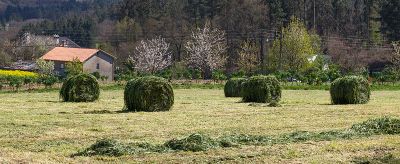Traditionally,
manufacturing of industrial products often requires toxic, expensive and
energy-demanding chemical processes. In the search for alternative
methods, researchers found a biological alternative for glue:
water-resistant adhesives produced by molluscs that attach to underwater
surfaces.
Using a similar approach, the EU-funded ʹNew bio-inspired processes and products from renewable feedstocks' (BIO-MIMETIC)
project aims to mimic the natural creation of other complex products.
The project's researchers are attempting to convert lignin, an
agricultural renewable waste, into high-value household products using
natural enzymes rather than harmful chemicals.
A polymer, meaning many parts, is a complex chain-like molecule
consisting of multiple repeated subunits that give it specific
structural properties, such as strength or elasticity. To test lignin's
potential use in polymer development, researchers first extracted lignin
from different natural sources.
Enzymes were then used to digest the molecule into its smaller
building blocks. Next, the researchers used these building blocks to
form different molecules with novel chemical properties.
The BIO-MIMETIC team also aims to create polymers for commercial
products such as detergents and adhesive gels, which could be used in
cosmetics and bio-textiles. Their approach, once again, is to mimic the
way in which marine organisms build and secrete adhesive bio-polymers.
Renewable waste resources and biological enzyme systems offer many
economic and environmental benefits for industrial product development.
BIO-MIMETIC products are expected to help reduce carbon footprints and
energy use, and will not require the conventional toxic solvents used in
chemical synthesis.
 EN
EN  CS
CS DE
DE ES
ES FR
FR HU
HU IT
IT PL
PL PT
PT РУ
РУ SK
SK TR
TR УК
УК AR
AR 中文
中文







